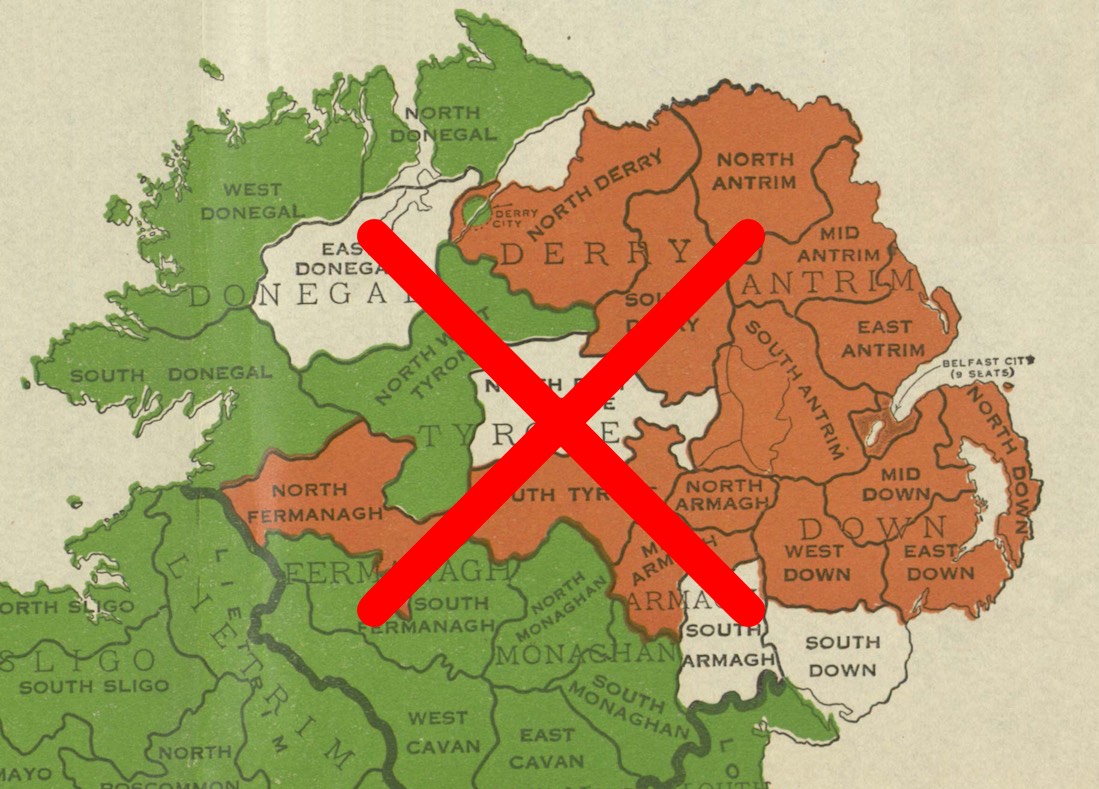
The release of census figures has removed any justification for the British partition of Ireland.
In 1926, the population of the partitioned area of the North, formed to have the strong support of its citizens, was around two-thirds Protestant.
This week, in a confirmation of rapid and profound demographic change, it was revealed Catholics now outnumber Protestants and other Christians for the first time, by 42% to 37%. (In 2011, Protestants and other Christians outnumbered Catholics by 42% to 41%.)
And for the first time, a majority of 51% have indicated that their identity is Irish and/or Northern Irish but not British, up from 47% in 2011.
The number who describe themselves as British onlu has declined by more than one in five over the past decade, while there has been an increase among those who do not identify with any religion or national identity.
Figures from local government areas show a decline in the numbers of those identifying as Protestant or British is taking place across the North, in every electoral area.
The number of people holding a British passport has also dropped in every area - and the number holding an Irish passport is up in every area. A staggering 63% rise in Irish passports over the last ten years has underlined demands for an Irish passport office to be opened in Belfast.
The figures have brought an end to the idea, originally advanced one hundred years ago, of the North of Ireland as “a Protestant state for a Protestant people”.
Leading historian Liam Kennedy from Queen’s University described it as “a clarifying moment” which unionists would find “bitterly disappointing”.
David Marshall, census director, said the differing age profiles of the Protestant and Catholic communities in the region explained the shift.
Sinn Féin leader Mary Lou McDonald has called for urgent plans for a border poll on Irish unity. She said “now is the time” to seize the opportunity to begin a dialogue on the matter.
“Make no mistake now,” she said. “Government cannot continue to look the other way – change is happening. And it’s for all of us to seize the opportunity.
“A future of unity and progress draws closer and a new Ireland is on the horizon.”
She said her party would make provision for the establishment of a citizens’ assembly on Irish reunification.
“I believe that this matter is now urgent,” she said. “It’s time for an inclusive conversation about the future of our country. And that is a future that belongs to everybody who calls this island home.”
She said the Dublin government had “stuck its head in the sand” about the issue to date.
“The conversation, the planning, the dialogue which has to be inclusive needs to start now,” she said.
“To those who have said to us consistently now is not the time, don’t be rushing the fences, now is the time. Now is the time to talk, now is the time to share ideas, now is the time to plan.”
SDLP leader Colum Eastwood said the census figures represented a “seminal moment” in the history of the island of Ireland.
“The census figures published today reveal that, by any measure, the constitution of the North has been transformed utterly 100 years on from partition,” he said.
“That is a moment of true change because it reflects a sustained period of lasting change.
“As we have built a more inclusive and diverse society, we have together shattered the bonds of an oppressive state which engrained discrimination against a Catholic minority in its every outworking for far too long.
“We are never going back to state-sponsored discrimination against any religious minority. I hope that all those who lived through decades of discrimination and who experienced the sharp end of that oppressive state are able to breathe a sigh of relief today.”
Aontú Leader Peadar Tóibín said the demographic changes are “hugely significant”.
“This comes on the back of significant political change also. The last few elections have seen political Unionism become a minority in elections for Stormont and Westminster. Brexit has turbo boosted the desire for Irish Unity amongst a larger number of people in the north,” he said.
“Key now is some level of self-awareness within Unionism. Political Unionism is acting as if it is still in a majority. Political Unionism believes that an issue must have a Unionist majority for it to be acceptable. They believe for example that majority support in the whole community for the Protocol is worth less than the majority opposition to it within Unionism.
“This is untenable democratically and is a recipe for disaster in the north in general. The Unionist boycott of Stormont is another echo of their historic dominance that has no place now in modern society”.
Unionist commentator Alex Kane said that while the census results were a blow for unionists, the “psychological damage has already been done”.
“One of the biggest blows to unionism was the loss of the majority in the assembly in 2017 and the second blow came with the minority of MPs elected in Westminster,” he said. “My suspicions are that unionists will know what is coming.”
![[Irish Republican News]](https://republican-news.org/graphics/title_gifs/rn.gif)
![[Irish Republican News]](https://republican-news.org/graphics/title_gifs/harp.gif)

